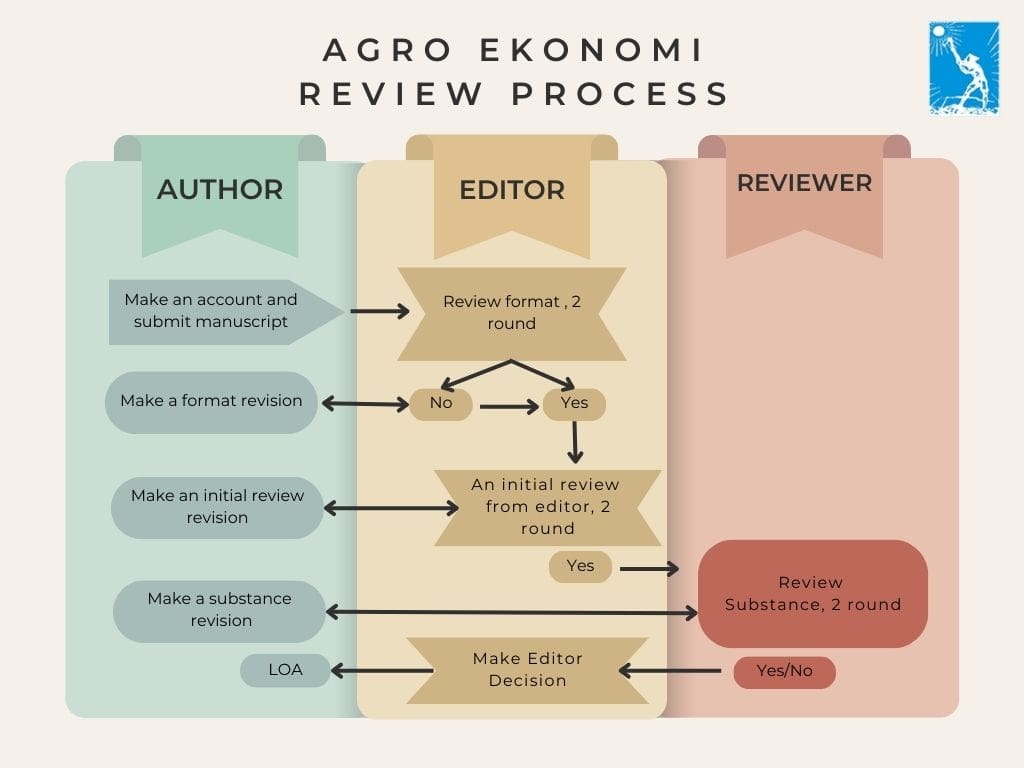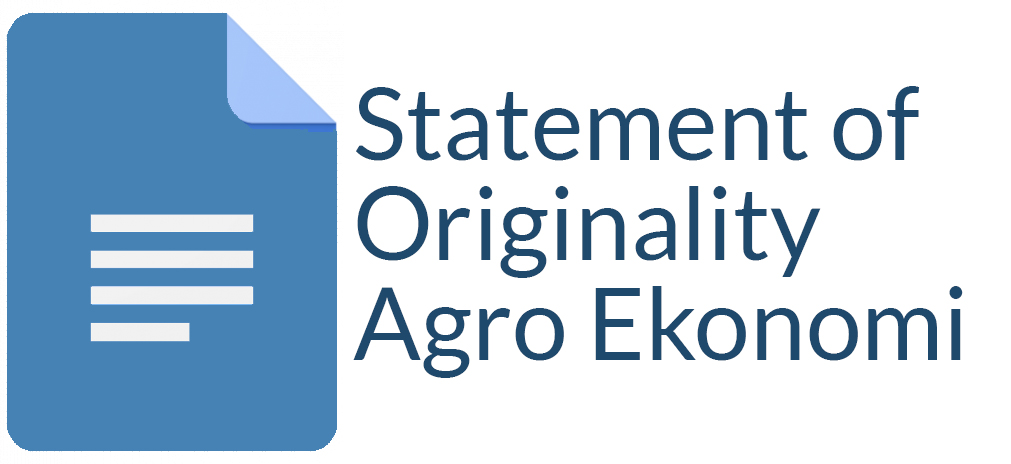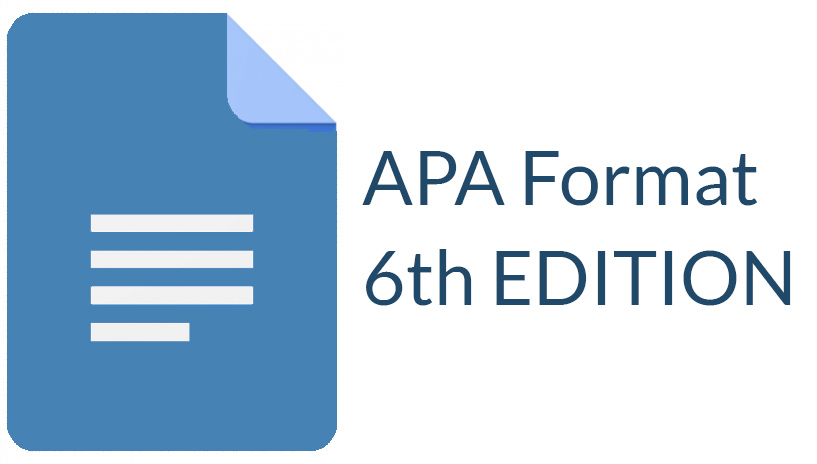The Implementation of Indonesian Sustainable Palm Oil on Oil Palm Plantations Smallholders in Kumai District, Central Kalimantan Province
Holpu Ronal Ambarita(1*), Any Suryantini(2), Dwidjono Hadi Darwanto(3)
(1) Postgraduate Program of Agribusiness Management, Faculty of Agriculture, Universitas Gadjah Mada
(2) Department of Agricultural Socioeconomics, Faculty of Agriculture,Universitas Gadjah Mada
(3) Department of Agricultural Socioeconomics, Faculty of Agriculture,Universitas Gadjah Mada
(*) Corresponding Author
Abstract
Indonesia Sustainable Palm Oil is one of responses of the Indonesian government’s responses to environmental issues, such as deforestation, and forest degradation. Central Kalimantan is a province in Borneo Island with the largest oil palm plantations, and it’s total area is about 1.6 million ha, of which smallholder's plantation are covering an area of 166,000 hectares. There are many constraints faced by smallholder plantations to implement ISPO certification. Because of that, it is important to study the level of application of the ISPO criteria and, the factors that influence the implementation of ISPO in Kumai District, Central Kalimantan. The study used non-probability sampling with a total of 100 respondents. This research used descriptive analysis and the Gutman scale to determine the application of ISPO criteria, multiple linear regression analysis was used to determine the factors that influence the application of ISPO. The results of the analysis showed that (1) On average, smallholders implement 80% of ISPO criteria, and (2) ISPO criteria implemented by smallholders were influenced by the length of farming experience, education level, and the number of household’s members.
Keywords
Full Text:
PDFReferences
Abram, N. K., Meijaard, E., Wilson, K. A., Davis, J. T., Wells, J. A., Ancrenaz, M., Budiharta, S., Durrant, A., Fakhruzzi, A., & Runting, R. K. (2017). Oil palm–community conflict mapping in Indonesia: A case for better community liaison in planning for development initiatives. Applied Geography, 78, 33–44.
Anggreany, S., Muljono, P., & Sadono, D. (2016). Partisipasi petani dalam replanting kelapa sawit di Provinsi Jambi. Jurnal Penyuluhan, 12(1), 1- 14.
Apriliani, E. P. (2013). Pengaruh Risiko Dan Harga Terhadap Keputusan Pembelian Melalui Kepercayaan Konsumen. JDM (Jurnal Dinamika Manajemen), 4(2), 180 -187.
Badan Pusat Statistik Indonesia. (2020). Statistik Kelapa Sawit Indonesia 2019. www.bps.go.id
Brandi, C., Cabani, T., Hosang, C., Schirmbeck, S., Westermann, L., & Wiese, H. (2015). Sustainability Standards for Palm Oil: Challenges for Smallholder Certification Under the RSPO. Journal of Environment and Development, 24(3), 292–314. https://doi.org/10.1177/1070496515593775
Dinas Perindustrian Perdagangan Koperasi Kotawaringin Barat. (2020). Daftar Koperasi Kabupaten Kotawaringin Barat. Nik.Depkop.Go.Id .
Emilia, R., Hutabarat, S., & Arifudin, A. (2014). Faktor-faktor Yang Mempengaruhi Minat Petani Kelapa Sawit Rakyat Berpartisipasi Dalam Sertifikasi Produk Di Kabupaten Kampar. SEPA: Jurnal Sosial Ekonomi Pertanian Dan Agribisnis, 11(1), 142–150.
Hanani, N., Setiawan, B., & Muhaimin, A. W. (2013). Effect characteristics of farmers on the level of technology adoption Side-Grafting in cocoa farming at Sigi Regency-Indonesia. Journal of Agricultural Science (Toronto), 5(12), 72–77.
Harianja, K., Hutabarat, S., & Dewi, N. (2015). Perception analysis of independent oil palm smallholders towards RSPO certification in Ukui district Pelalawan regency (Vol. 2), 1-13.
Hidayat, K. N., Glasbergen, P., & Offermans, A. (2015). Sustainability certification and palm oil smallholders’ livelihood: A comparison between scheme smallholders and independent smallholders in Indonesia. International Food and Agribusiness Management Review, 18(1030-2016–83041), 25–48.
Hutabarat, S. (2017). ISPO certification and Indonesian oil palm competitiveness in global market: smallholder challenges toward ISPO certification. Agro Ekonomi, 28(2), 170–188.
Hutabarat, S., Slingerland, M., Rietberg, P., & Dries, L. (2018). Costs and benefits of certification of independent oil palm smallholders in Indonesia. International Food and Agribusiness Management Review, 21(6), 681–700. https://doi.org/10.22434/IFAMR2016.0162
Jelsma, I., Schoneveld, G. C., Zoomers, A., & van Westen, A. C. M. (2017). Unpacking Indonesia’s independent oil palm smallholders: an actor-disaggregated approach to identifying environmental and social performance challenges. Land Use Policy, 69, 281–297.
Kementrian Pertanian Republik Indonesia. (2019). Peraturan Menteri Pertanian No 11 Tahun 2015No. www.pertanian.go.id
Lee, J. S. H., Ghazoul, J., Obidzinski, K., & Koh, L. P. (2014). Oil palm smallholder yields and incomes constrained by harvesting practices and type of smallholder management in Indonesia. Agronomy for Sustainable Development, 34(2), 501–513. https://doi.org/10.1007/s13593-013-0159-4
Najmi, N. L., Suharno, S., & Fariyanti, A. (2019). Status keberlanjutan pengelolaan perkebunan inti rakyat kelapa sawit berkelanjutan di Trumon, Kabupaten Aceh Selatan. Forum Agribisnis: Agribusiness Forum, 9(1), 53–68.
Puspa, N. (2018). Dinamika Kesiapan Petani Kelapa Sawit dalam Penerapan Indonesia Sustainable Palm Oil (ISPO) di Provinsi Jambi, http://repository.ipb.ac.id/handle/123456789/93363 .
Wibowo, S. G. M., & Wijayanto, D. (2015). Analisis Produktivitas dan Finansial Usaha Perikanan Jaring Arad (Baby Trawl) di Pangkalan Tambak Lorok Kota Semarang. Journal of Fisheries Resources Utilization Management and Technology, 4(4), 164–169.
Article Metrics
Refbacks
- There are currently no refbacks.
Copyright (c) 2018 Agro Ekonomi

This work is licensed under a Creative Commons Attribution-ShareAlike 4.0 International License.
View My Stats











